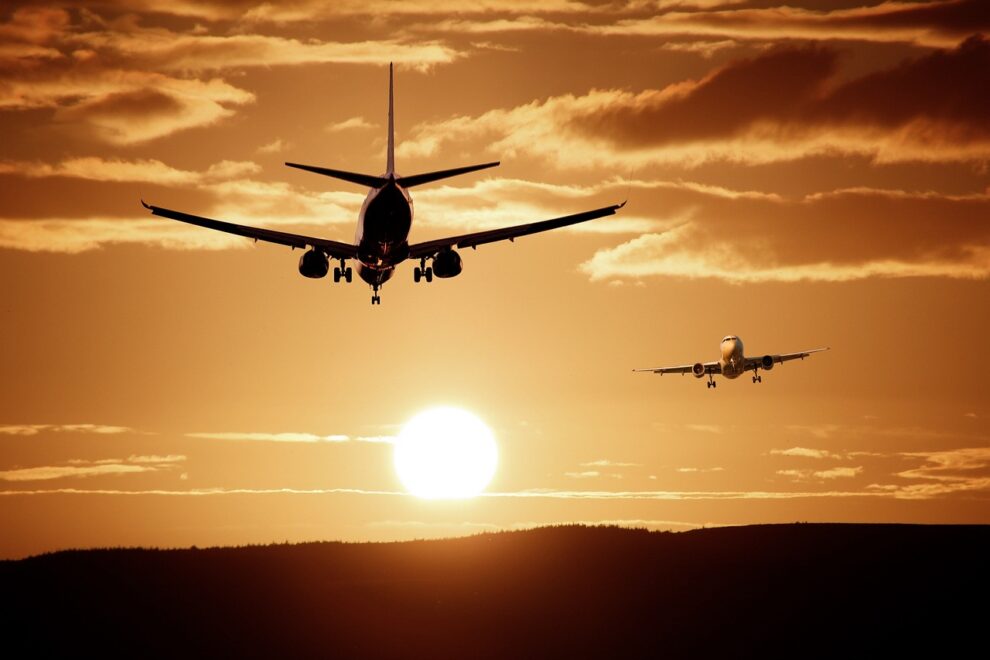India and China resumed direct flights on Sunday after a five-year suspension, a move important both for trade and a symbolic step as Asia’s giants cautiously rebuild relations.
Data from tracking website Flightradar24 showed the flight, operated by India’s largest commercial airline IndiGo, took off from Kolkata’s Subhash Chandra Bose International Airport in eastern India at 10:00 pm (1630 GMT) for Guangzhou in China.
The neighbours — the world’s two most populous nations — remain strategic rivals competing for regional influence, but ties have eased gradually since a deadly Himalayan border clash in 2020.
India’s government said the resumption of flights will boost “people-to-people contact” and aid the “gradual normalisation of bilateral exchanges”.
Warming relations with Beijing come as India’s ties with key trade partner Washington falter, following US President Donald Trump’s order imposing punishing 50 percent tariffs.
Trump’s aides have accused India of fuelling Russia’s war in Ukraine by buying Moscow’s oil.
There are already regular flights between India and Hong Kong, while additional services from the capital New Delhi to Shanghai and Guangzhou will begin in November.
“The direct air link will reduce logistics and transit time,” said Rajeev Singh, head of the Indian Chamber of Commerce in Kolkata, telling AFP it would benefit businesses.
India’s eastern port city of Kolkata has centuries-old ties with China dating back to British rule, when Chinese migrants arrived as traders.
Indo-Chinese fusion food remains a beloved staple of the city’s culinary identity.
“It’s great news for people like us, who have relatives in China,” said Chen Khoi Kui, a civil society leader in Kolkata’s Chinatown district of Tangra. “Air connectivity will boost trade, tourism and business travel.”
– ‘Long-term challenge’ –
India runs a significant trade deficit with Beijing, relying heavily on Chinese raw materials for industrial and export growth.
The thaw between New Delhi and Beijing followed meetings between their leaders in Russia last year and in China in August.
India’s imports from China surged to more than $11 billion last month, up more than 16 percent compared with September 2024, according to New Delhi’s commerce ministry.
Exports from India to China were $ 1.47 billion, modest by comparison, but up around 34 percent year-on-year.
Direct flights between the two countries were suspended during the Covid-19 pandemic, halting roughly 500 monthly services.
Relations then plummeted after the 2020 border skirmish between the nuclear-armed nations, when at least 20 Indian and four Chinese soldiers were killed.
New Delhi responded by tightening restrictions on Chinese investments and banning hundreds of apps, including TikTok.
India then deepened ties with the US-led Quad alliance — also including Japan and Australia — aimed at countering China’s influence in the Asia-Pacific.
Both sides have troops posted along their contested 3,500-kilometre (2,175-mile) high-altitude frontier.
But this month, soldiers on each side exchanged gifts of sweets on the Hindu festival of Diwali, “marking a gesture of goodwill”, said Yu Jing, the spokesperson of the Chinese Embassy in India.
The Indian Express, in an editorial after Indian Prime Minister Narendra Modi and China’s President Xi Jinping met in August, said improving ties with Beijing “sends an appropriate signal” to Washington.
But relations still have far to go.
“Managing an increasingly assertive China remains India’s long-term challenge,” the newspaper added.
“These fundamental realities remain unchanged, regardless of Trump’s whimsical diplomatic actions.”

Add Comment